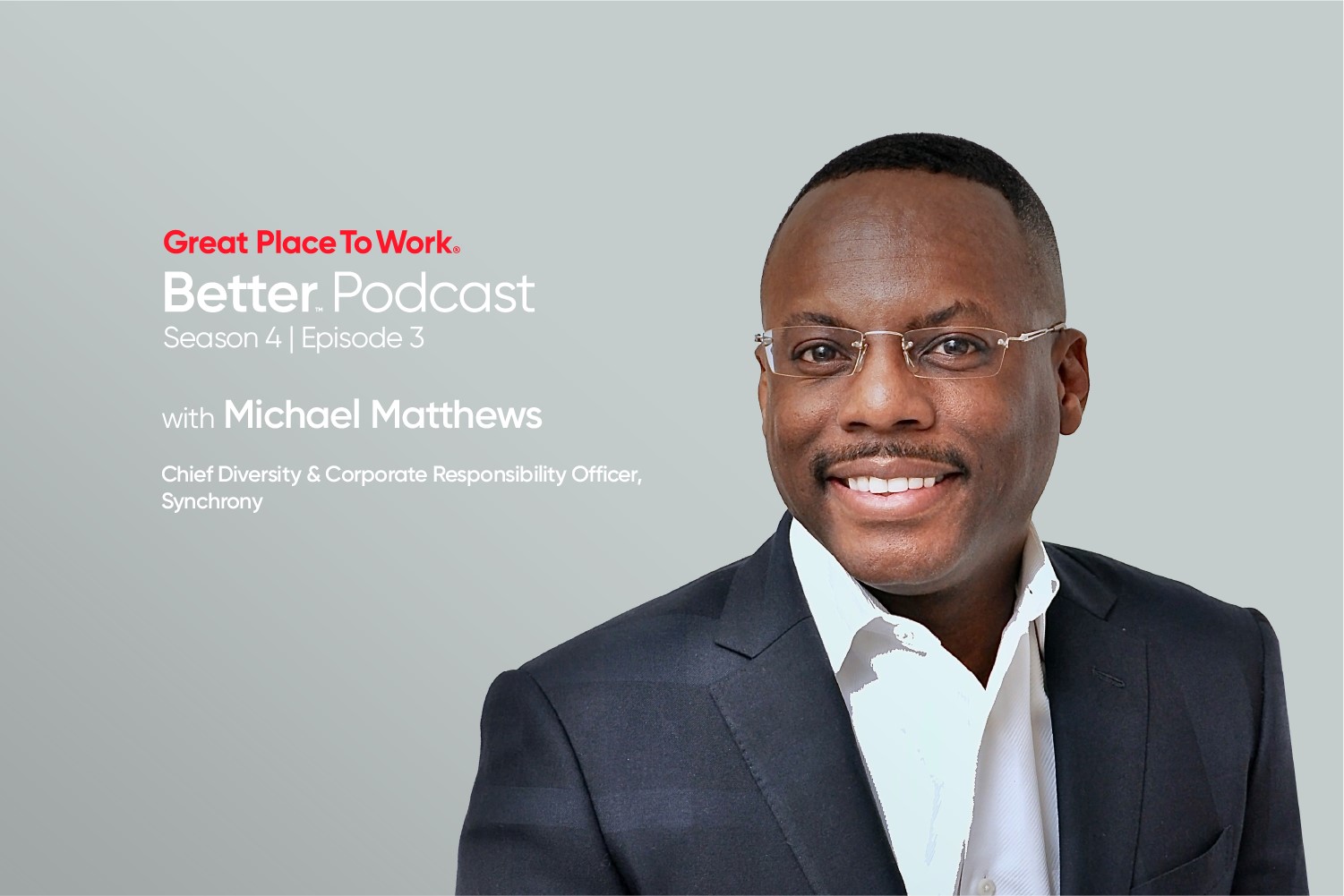
High-trust leadership, Innovation
In today’s workplace, employees are more likely to embrace the integration of artificial intelligence tools if organizations prioritize trust, transparency, and open communication.
Artificial intelligence (AI) is becoming an indispensable part of the modern workplace, revolutionizing the way we work and offering significant benefits, such as efficiency, automation, and more. However, many workers are uncertain about whether it will help or hurt their jobs.
Attend our annual company culture conference May 7-9, 2024
A recent Gallup survey of more than 18,000 workers revealed that 53% of workers say they don’t feel prepared to work with AI, while just three in 10 think that AI can be beneficial to their work.
As business leaders feel the increasing pressure to implement AI, establishing trust and understanding of how AI affects their workflows with employees is crucial to fully embrace its potential across an organization.
Recent insights from a global UKG study underscores a critical revelation: If organizations prioritize transparency around AI’s impact on workflow and usage, three out of four employees say they would accept, and get excited about, the integration of AI into their roles.
Trust is the foundation of modern workplaces
Michael C. Bush, CEO of Great Place To Work, a global authority on workplace culture, stresses the pivotal role in AI has in binding employees and organizations together. More than an abstract concept, he says, trust is necessary for an environment where everyone feels valued and heard.
The same goes for AI implementation.
“If I could create a backdrop for the world right now, I’d spell out the word trust as large as I could,” says Bush. “That’s what the conversation around AI and workplace dynamics is all about. Employees must understand how AI affects their workflows to fully embrace its potential, and this culture of trust must extend to building confidence in AI systems.”
Companies, such as Adobe, stand out among the Fortune 100 Best Companies to Work For because of their employee-centric approaches to AI. Adobe actively involves employees in the testing of new capabilities powered by Firefly, its family of generative AI models.
Prior to the beta launch of Firefly, the company conducted a voluntary employee session addressing the ethical aspects of generative AI, attracting thousands of attendees and showcasing substantial employee interest and investment in issues surrounding responsible AI innovation.
Adobe has also emphasized a commitment to transparency internally and across the industry in a few ways, first of which was cofounding the Content Authenticity Initiative to help combat the threat of misinformation by driving adoption for Content Credentials—essentially a “nutrition label” for digital content. In addition, the company established AI Ethics Principles to guide thoughtful deployment of AI in its products, as well as its AI Ethics Committee and Review Board made up of employees from diverse professional backgrounds and life experiences.
The company is also engaging with industry leaders, organizations, and policymakers around the world to promote responsible AI regulations to better manage AI-related risks—such as the spread of misinformation, harmful deepfakes, and biases—to individuals, organizations, and society.
“Trust comes down to transparency, empathy, and reliability,” says Allie K. Miller, former global head of machine learning for startups and venture capital at AWS. “And longevity is built into trust.”
Building the framework for transparency
UKG itself is committed to making AI accessible to all employees over the long term. The company initiated a cross-functional curriculum with nine learning paths, encouraging all employees to engage in AI training. This emphasis on training aims to bridge the gap between those who already know and leverage AI and those at risk of being replaced by it.
“We want to make sure all our employees get to know how to use these tools and feel comfortable with them,” says Hugo Sarrazin, chief product and technology officer at UKG. “Then, they can define their own AI journeys.”
Additionally, UKG established an AI governance group, including members from various departments, and organized a generative AI hackathon for the entire company, during which employees were encouraged to use existing AI tools for creative purposes. This hackathon served as a teaching moment, allowing employees to explore and apply AI in their respective roles, from HR to tech support.
The intention is to expand AI access beyond specialized groups, making it part of a collective learning and innovation culture within the organization.
Such an inclusive approach emphasizes that AI can empower employees across different functions, help build confidence in AI systems, and disseminate crucial insights about which use cases and applications work and which don’t.
To support these initiatives, the company created a new UKG Great Place To Work Hub, which leverages AI to guide HR leaders on behaviors and best practices to create great workplace cultures, integrates decades of benchmarks and Trust Index survey results with UKG Pro human capital management (HCM) data. Through open conversation around these empowering insights, HR leaders can decisively shape workplace cultures anchored in trust.
“There are all sorts of signals that exist inside an organization,” says Sarrazin. “If we can use that data as an element to inform decision-making while engaging our employees to be part of the solution, we can do some great stuff with that data.”
With 75% of employees reporting that they would be more accepting about AI if their companies were more forthcoming about how they are using AI, greater transparency and collaboration seems to be the way to increased trust between employees and their companies.
“When employees trust the intentions behind AI, they are more likely to embrace and collaborate with it. Companies on our list have worked very hard to have a high trust level with their employees,” says Bush. “Change can make people fear the unknown, but they won’t panic about their job safety and financial security if the foundation of trust already exists. Instead, they’ll want to learn more.”
This article was created in partnership with FORTUNE Brand Studio.
Get more insights
Learn more strategies from our workplace culture experts at our For All™ Summit, May 7-9 in New Orleans.












